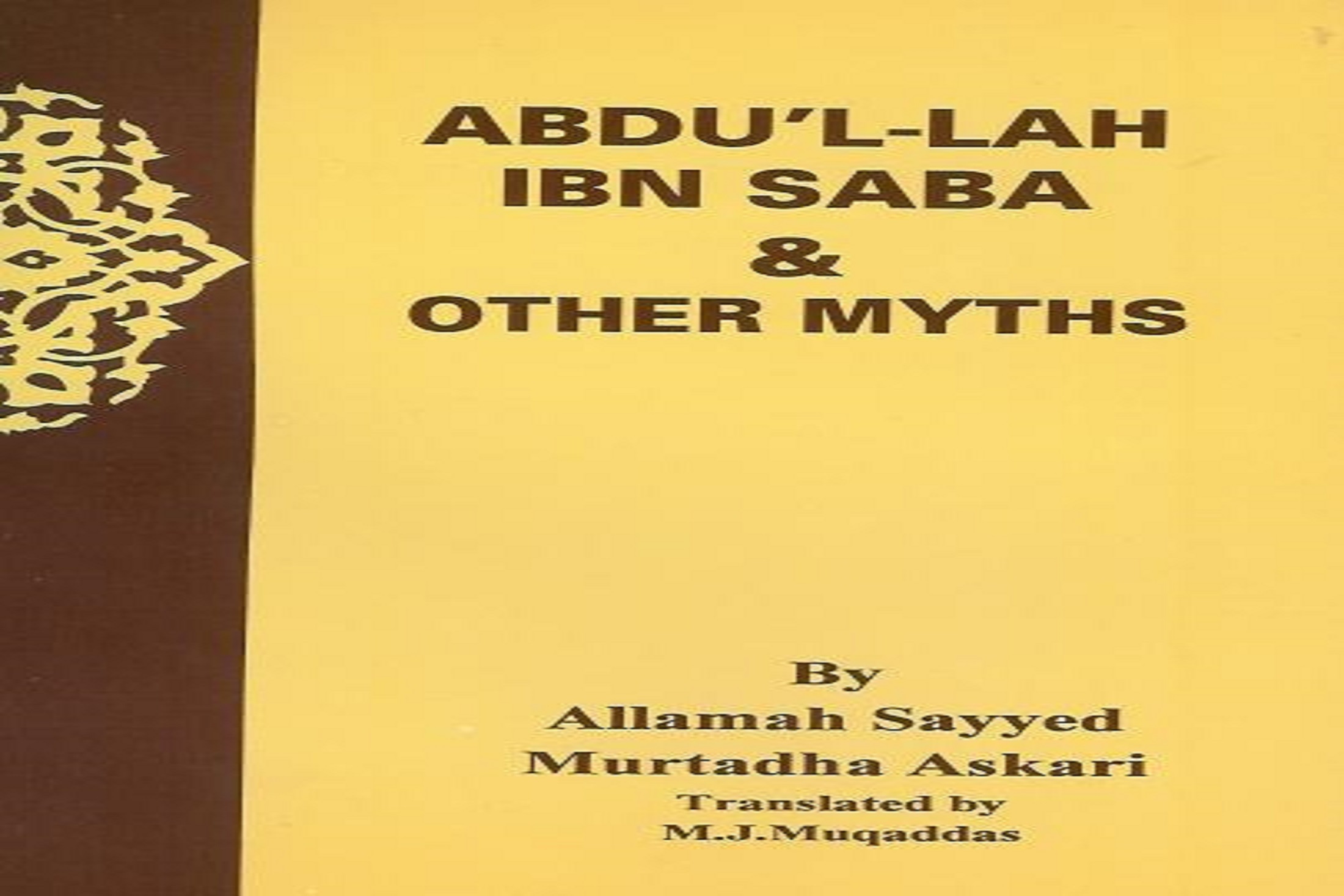Amr-e-Aas’s poetry on Ameerul Momineen’s (a.s.) virtues – Part I
The Holy Prophet (s.a.w.a.) had been regularly announcing the successorship and leadership of Ameerul Momineen Ali b. Abi Talib (a.s.) right from the commencement of Islam. This chain of announcement concluded during the Hajjah al-Wida, while returning from Mecca to Medina, at a place called Johfah. The entire incident is well-documented in Islamic history as also the exegesis of Quran. Our aim over here is not to analyze the innumerable merits and excellence and of Ameerul Momineen (a.s.). We only wish to advance a poetry penned by a staunch enemy of Ameerul Momineen (a.s.), Amr b. Aas, wherein he has condemned Muawiyah and praised Ali (a.s.) and addressed him as ‘Imam al-Hoda’ (Imam of guidance). A noteworthy point over here is that while the friends and lovers of Ali (a.s.) have eulogized him through poetry, even his staunchest enemies have been just as active in promoting their art of poetry and have testified to the superiority and authority (wilayat) of Ali (a.s.) in verse.
Amr b. Aas – a proficient poet – penned a poem that is better known as ‘Qasida-e-Juljuliyyah’. The Arabs consider this poetry among the masterpieces. It is full of praise for Ali (a.s.). Amr b. Aas has penned 66 verses in this poetry.The renowned scholar Abdul Husain Amini (r.a.), better known as Allamah Amini, in his invaluable book ‘Al Ghadeer fi al-Kitaab wa al-Sunnah wa al-Adab’, has documented the entire poem along with his notes.
Muawiyah’s letter to Amr b. Aas
When Amr b. Aas did not send the tributes/taxes of Egypt, Muawiyah b. Abu Sufyan, demanded the same from him in a letter thus: ‘I have raised the matter of the tributes of Egypt time and again, but you have not complied; on the contrary you have been defiant. This is my last letter to you on the subject. Submit the tributes of Egypt immediately, without any delay. Wassalam’
Amr b. Aas’s rejoinder
Taking exception to the tone of the letter, Amr b. Aas replied in verse condemning Muawiyah and reminding him of the instances when they both conspired to keep the caliphate away from Ali (a.s.). He goes on to highlight the truthfulness and merits of Ali (a.s.) and acknowledges him as ‘Imam al-Hoda.’
Qasida-e-Juljuliyyah
The last word of this panegyric poem (Qasida) is Juljuliyyah from which it derives its name. Juljuliyyah means bell or jingle. Every verse of this poem is a resounding slap in Muawiyah’s face. Our purpose is not to offer a literal word by word translation of the entire poem. Rather we wish to expose the cunningness and scheming nature of Muawiyah and Amr b. Aas so that Muslims are aware of their dirty politics. To that end, we present a gist of the poem to give an idea.
For the purpose of translation we have relied on the Persian translation (volume 3) of ‘Al-Ghadeer’. We have drawn from the Persian rhymed version of the poem that has been endorsed by 106 poets as analysed by Muhammed Taqi Wahidi.
(al-Ghadeer, vol. 3, p. 207)
Meaning of Qasida-e-Juljuliyyah
- O Muawiyah do not feign innocence about our plan, nor be a step away from the straight path
- Have you forgotten the day when you became a leader and how I had cheated the people of Syria
- How the people came to you in flocks and started wailing and complaining to you as meek cows
- Have you forgotten that I told them that their obligatory prayers would not be accepted without accepting Muawiyah
- And was the reason that they left their religion and obligatory prayers and got ready to fight in war with you
- Remember the day, when you turned away from ‘Imam al-Hoda’ despite the fact that his army comprised of brave and courageous soldiers
- (You had said), should I wage a war along with the people of piety along with these cheaters and evil people who are as silent cows?
- I said: Yes, rise against them; as I will see a war between the better and the best
9.Hence, due to me these people fought with the chief of successors Ali (a.s.) to avenge the death of Usman
- I instigated your soldiers to raise the pages of Quran on spears
- I had taught your soldiers to expose their private parts so that their enemy will not kill them and avert their eyes
(In the battle of Siffeen, Amr b. Aas was once confronted by Ali (a.s.) and when he realized death was upon him, to save his life, he threw himself on the ground and exposed his private parts. This action saved his life (Sharh-e-Nahjul Balaghah of Ibne Abil Hadeed vol 2 pg 110). A similar modus operandi was adopted by the ‘brave general and raider’ Busr b. Artaat in the same battle.)
- After which the rebels rose against Haider and kept the people away from guidance
- Have you forgotten how I had conversed with Abu Musa Ashari in ‘Dumah al Jandal’.
(After the battle of Siffeen, Ameerul Momineen (a.s.) went to Kufa and from there sent Abu Moosa Ashari under the leadership of Shareeh b. Haani along with 400 people to Dumah al Jandal and sent Abdullah b. Abbas along with them as Imam of the congregation. At this point, Muawiyah sent Amr b. Aas to Dumah al Jandal. After reaching there Amr b. Aas did not meet Abu Moosa for three days and then with a lot of planning met him and embellished him with different titles which fooled Abu Moosa. He asked Amr b. Aas: What is your view about the correct way for the reformation of the Muslims? Amr b. Aas answered: You denounce the caliphate of Ali (a.s.) and I do the same with Muawiyah. We will select Abdullah b. Umar who has not been involved in any conspiracy and corruption so far, nor has he been involved in any bloodshed. The promises made by Amr b. Aas, convinced Abu Moosa. Amr b. Aas deceived him with his cunningness and convinced Abu Moosa to initiate the proceeding and when Abu Moosa got the title of ‘Samiri of Iraqis’, he said: O people! After a lot of thinking and consultation and for the reformation of the people and their guidance, and to further avoid bloodshed we have removed a way out of this situation and it is this that I denounce the caliphate of Ali (a.s.) and Amr b. Aas will denounce the caliphate of Muawiyah. I have set aside the caliphate of Ali (a.s.) in the same way as I set aside my turban (and he removed his turban) and we select such a person as caliph who himself is a companion of the Messenger of Allah (s.a.w.a.) just like his father and he is Abdullah b. Umar. (Manaqib-e-Shahre Ashoob vol 3 pg 185). Then Amr ibn Aas rose and said: O people! Certainly Abu Moosa has denounced the caliphate of Ali (a.s.) and he is a wise person with regards to Ali (a.s.), know that even I have denounced the caliphate of Ali (a.s.) and appoint Muawiyah as your and my caliph. When Abu Moosa realized he had been duped he turned on Amr b. Aas and showered him with abuses. Amr b. Aas retaliated in the same coin. They turned the arbitration into a joke and it became the cause of much corruption and dissent in society.)
- I speak in a way that turns a person greedy and he is deceived by my cunningness
- I removed Haider from caliphate as effortlessly as we remove shoes from our feet
- I made you wear the ring of leadership when you had lost all hopes of leading
- I made you sit on the pulpit of the Holy Prophet (s.a.w.a.) without waging a war
- (While) you were not capable of this position
- I banished the hypocrite soldiers of Iraq, due to which you could conquer the east and west
- It was I who spread your name in areas far and wide.
- O the son of Hinda (the liver eater) (Muawiyah)! If you do not recognize me then this is very good for me
- Had I not been your advisor then people would have never obeyed you nor would they ever accept you
- Had I not been there, you would be sitting in the house like women and would never leave the house
- O son of Hinda! I assisted you against the Great News and the Best of Creation (Ali (a.s.)) on account of my ignorance and innocence
- And when I made you the chief of the people, we fell to depths of lowliness and plunged to lowest of the low
- Despite the fact that we had heard numerous merits and virtues about Ali (a.s.) from Muhammed Mustafa (s.a.w.a.)
continued in part II ……



